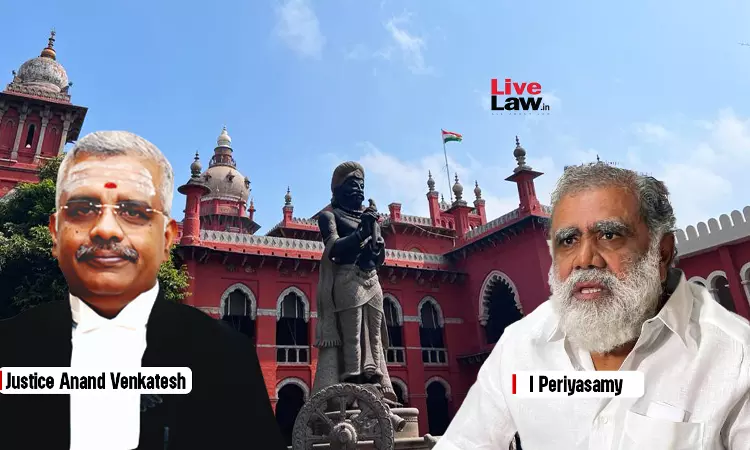Madras High Court Sets Aside Discharge Of TN Minister I Periyasamy In Corruption Case
Upasana Sajeev
26 Feb 2024 11:11 AM IST

Next Story
26 Feb 2024 11:11 AM IST
The Madras High Court has set aside the discharge of Tamil Nadu Rural Development Minister I Periyasamy in a corruption case. The case against Periyasamy was that while serving as the Minister for Housing in the DMK cabinet between 2008 and 2009, he had conspired with other persons to illegally obtain a High Income Group Plot in the Mogappair Eri Scheme of the Tamil Nadu Housing Board.On...
